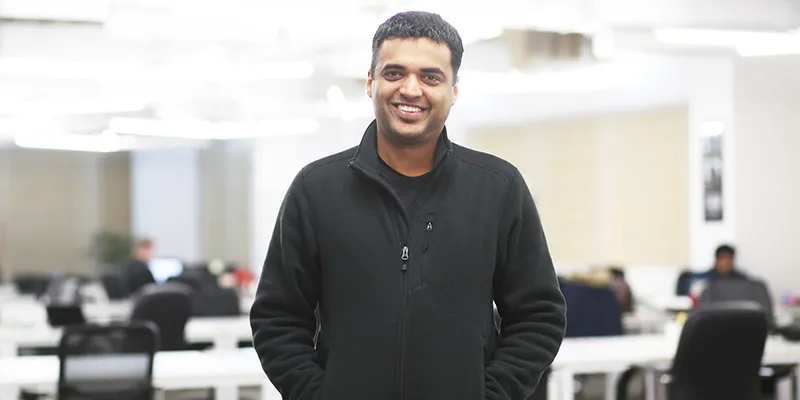Zomato back in the acquisitions game. Acquires logistics startup Sparse Labs.
Till last April, Zomato seemed to be considerably hungry, acquiring several startups for its kitty. After that, all was silent for a while, with news of firing and lower valuations. Now, Zomato seems to be back in the acquisition game. Zomato, today on its official blog, announced that it acquired Sparse Labs.
The two-year-old logistics-tech startup, started by Pankaj Batra, helps restaurants track and optimise their in-house delivery fleet. In the blog, Deepinder Goyal, Co-founder and CEO of Zomato, explained:
Joining forces with Sparse Labs will allow us to significantly improve the food ordering experience on the app, by giving users real-time GPS-based status updates on their order. While we were already working on making this feature available for deliveries handled by our logistics partners, Sparse Labs will now help us enable delivery tracking for restaurant-owned fleets as well.
At the restaurant end, this technology will help make deliveries highly cost- and time-efficient, allowing them to optimise delivery routes and ensuring minimal wait time for riders. We’ve always maintained that the most cost-efficient delivery fleet is the restaurant’s own, where they can utilise the same staff during off-peak hours for back-of-house and marketing activities.
Sparse Labs will be renamed as Zomato Trace, and we will be rolling out the service free of cost to our restaurant partners very soon.
Sometime in June this year, Deepinder had written about the unit economics of Zomato's online ordering business in India. The post went on to explain that in May, they processed approximately 750,000 orders and continued to grow at an average of 30 percent month-on-month.

Goyal went on to say:
We’ve grown our online ordering business in a sustainable manner, focusing on high average order values, consciously avoiding the discounting route, and putting a great customer experience at the core of everything.
Of the approximately 750,000 orders last month, 80 percent of them were fulfilled by restaurants themselves (where we don’t do the delivery for them) – we call these Type A orders. 20 percent of the orders were fulfilled by us, through our last-mile logistics partners – we call these Type B orders.
The year of acquisitions
After raising a $50 million round recently, with a valuation of over $1 billion, the company has begun a buying spree outside its bread and butter restaurant listing companies.
After a bunch of acquisitions across various geographies, Zomato also acquired MapleGraph to launch Zomato Base and has just acquired US-based NexTable (source), a restaurant reservations and table-management platform that competes against the likes of Priceline’s OpenTable and SeatMe from Yelp (here’s what you need to know about Yelp).
The company’s traffic had reportedly grown three times after it acquired UrbanSpoon, and the number of restaurants on the platform supposedly grew seven times and is even present in 23 countries. Deepinder, in his blog three weeks back, also said:
Four years on, we claim to be the #1 player in our space in 18 countries (of the 23 we’re in) in terms of monthly unique users. We say ‘claim’ because it’s hard to substantiate, given the limited availability of data about our competitors in these countries.
The world of food delivery
Zomato was one of the later entrants into the online food delivery space with its entry last year. While TinyOwl, once pegged as a big player, faced several sticky situations, Zomato nevertheless has competition in the form of Swiggy.
The latter recently raised a Series D funding round of $15 million led by Bessemer Venture Partners. This round of funding comes within nine months of its Series C funding round of $35 million from Singapore-based RB investments and New York-based Harmony Partners.
The organised food business in India is worth $48 billion, of which food delivery is valued at $15 billion. However, towards the end of 2015, the space took a downward plunge.
If you look at the amount of funding made in the foodtech space in the month of April last year, it was a whopping $74 million for a total of seven deals. In August, this dipped to $19 million with a total five deals. In September, this number further dropped to a total of just two deals.
This year, while there have been follow-up rounds for players like FreshMenu and Swiggy, investors seem to be wary of the space. Currently, in the food delivery space, Swiggy and Zomato seem to be fighting it out, of which only Swiggy is purely into online food delivery.







